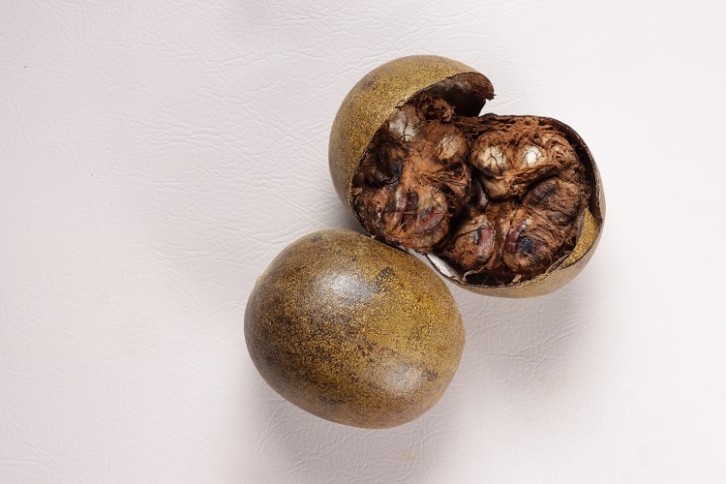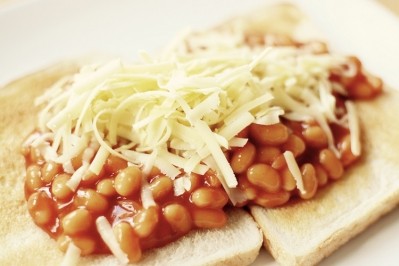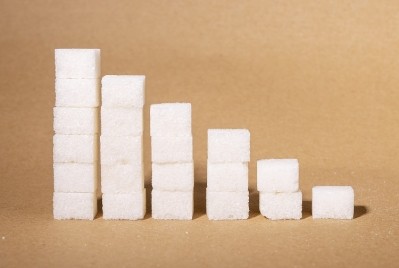Monk fruit ingredient no longer a novel food in UK, what about EU?

Processed food ingredients made from monk fruit have not legally been allowed on the market in the UK due to their ‘novel food’ classification. But in a regulatory U-turn, the Food Standards Agency (FSA) has changed its stance.
As of this week, monk fruit decoctions are no longer considered novel, meaning they can be used as a sweet, low-calorie ingredient in food and drink products sold in the UK.
Is this also sweet news for food and drink in Europe?
What are monk fruit decoctions?
Monk fruit is a small sub-tropical melon that has grown in the remote mountains of Southern China for centuries.
Best known for its sweet, low-calorie profile, whole dried monk fruit can be found in Chinese supermarkets all over the European Union. The fruit’s decoctions are used as a food ingredient in countries around the world, including the US, Canada, Australia, India, Mexico, New Zealand, and Israel. Applications include soups, stews, desserts, sauces, baked goods, and breakfast cereals.
A decoction is a product made by combining plant material with hot water so that the water-soluble compounds in the plant material are dissolved, making an extraction solution.
In these countries, monk fruit decoctions are not considered novel. As of this week, the UK can also be added to the list.
Why the novel food U-turn?
Up until now, monk fruit has been classified as a not-approved novel food and has not been on the market as a processed food ingredient.
This decision stems back to when the UK was an EU Member State, and the European Food Safety Authority (EFSA) deemed that monk fruit decoctions were not consumed as food to a significant degree in the EU before May 1997 – when the first regulation on novel food came into force.
Monk fruit ingredient supplier Monk Fruit Corp. has long been collecting evidence on monk fruit decoction consumption, which it submitted to the FSA. In March of this year, the High Court ruled in favour of Monk Fruit Corp, ordering the FSA to provide a new decision.
The FSA has now concluded that monk fruit decoctions are not a novel food, meaning they can be used as ingredients in food and beverage products made for sale on the UK market.
Does this mean monk fruit sweeteners are on the menu?
The ruling is specific to non-selective aqueous decoctions, meaning decoctions where there has not been selective concentration of any particular compounds, explains David Thorrold, general manager of sales and marketing at Monk Fruit Corp.
What makes monk fruit sweet?
Monk fruit contributes sweetness to fruit formulations with minimal sugar and calories, thanks to its sweet mogroside molecule – which occurs naturally in the fruit.
It’s important to note that monk fruit decoctions are not monk fruit extract sweeteners, which are considered a food additive. This is because they are made by selective processing, which concentrates the sweet mogroside V molecule, in some cases to a concentration of more than 50%, Thorrold tells FoodNavigator.
Although monk fruit extract sweeteners are well known to US audiences – having been considered GRAS since 2010 – they have not received the regulatory greenlight in either the EU or UK.
“Monk Fruit Corp.’s monk fruit decoctions are processed in a way which does not selectively concentrate the sweet mogroside molecules, and are therefore equivalent to the traditional food, and not classified as a sweetener food additive.”
Monk fruit ingredient no longer novel. Sweet news for the EU?
European food and beverage manufacturers will be keeping a keen eye on this news. If monk fruit decoctions are no longer considered novel in the UK, does that mean they’re no longer novel in the EU?
Monk Fruit Corp. has suggested that could be the case. “Now that the FSA has confirmed there was significant consumption in the UK before May 1997, there is no longer any uncertainty as to the novel food status of monk fruit decoctions in the UK – they are confirmed as not novel food in the UK,” Throrrold tells this publication.
“However, there is also no longer any uncertainty in the EU, as the UK was a Member of the EU at the relevant time we needed to demonstrate a history of consumption – i.e. before May 1997.”
Although the FSA’s decision is technically only a ruling in respect to the novel food status of monk fruit decoctions in the UK (because the UK is no longer an EU Member State), in practice it has EU-wide effect, suggests the sales and marketing lead.
From the European Commission's perspective, the change in the UK's stance is currently being reviewed internally. "We take note of the decision being overturned in the UK and are discussing the issue with Member States," a spokesperson told FoodNavigator.
Novel food U-turn ‘unlocks’ monk fruit potential
For Monk Fruit Corp., the novel food U-turn ‘unlocks’ the ingredient’s potential. Unlike some other sweet ingredients on the market, monk fruit decoctions don’t come with a bitter aftertaste, and their low-calorie profile make them suitable for a ‘wide range’ of food and drink.

As to how consumers in other geographies have responded to monk fruit ingredients, Thorrold says the reaction has been ‘very favourable’. “Monk fruit decoctions appeal to food and beverage companies and consumers because of their great taste, easily explained manufacturing process, and clear origin story.”
Indeed, it’s used by some of the world’s largest food and beverage manufacturers, including Nestlé, Coca-Cola, Pepsi, Danone, and The Kraft Heinz Company.
“Monk fruit decoctions add a great-tasting, clean label, 100% natural option to the sugar reduction toolkit and we believe this will have a significant positive impact for food and beverage companies and consumers in the UK and across the EU.”
































